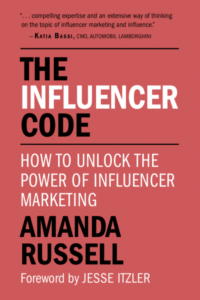Influencer Marketing Is Taking Advantage of The Metaverse! Are You Ready?

When Pokémon crossed over from cute animation to augmented reality gaming, it seemed like the rapidity with which technology was interlocking with real-life could not get any bigger. That tech has now moved far ahead with the coming of the metaverse. Mark Zuckerberg, too, repositioned Facebook as “Meta”. This move signified the true extent to which the metaverse has penetrated the digital space. “Meta” is an endeavor to reinvent Facebook as the new public gathering ground in the metaverse. Let us see how the metaverse will impact influencer marketing.
A Whole New World
In its simplest definition, the metaverse is a virtual world where your digital persona—your avatar, if you will—lives, works, plays, and socializes. It is a self-contained digital parallel to the real world, where you are wholly immersed in your surroundings, experiencing everything around you, and having access to a multitude of places, things, and activities while lazing about in your room. This next-generation iteration of the virtual space is a potent tool if harnessed correctly. It has tremendous potential in terms of convenience, access, experiences, and even in the way brands can market themselves.
 The move online, in fact, has already started for brands that have recognized the first-mover advantage and tapped into consumer curiosity. The pandemic moved many events online, including auctions and fashion shows. And Gucci recently did one better; it sold digital bags on a site called Roblox. As well-known labels start taking advantage of the metaverse, the other millennial phenomenon that can benefit to a large extent by tapping into this 3D renaissance is the world of influencer marketing. But what is influencer marketing, and how can we leverage the metaverse?
The move online, in fact, has already started for brands that have recognized the first-mover advantage and tapped into consumer curiosity. The pandemic moved many events online, including auctions and fashion shows. And Gucci recently did one better; it sold digital bags on a site called Roblox. As well-known labels start taking advantage of the metaverse, the other millennial phenomenon that can benefit to a large extent by tapping into this 3D renaissance is the world of influencer marketing. But what is influencer marketing, and how can we leverage the metaverse?
Influencer Marketing and Its Impact
Influencer marketing involves influencers placing endorsements and products on their social media. Influencers are generally celebrities, credible people, top brands, and media houses that have a large fan base, social influence, or an expert level of knowledge on a particular topic.
The far-reaching impact, use, and continuous access to social media platforms have made influencer marketing an important and effective tool for brands and organizations. It illustrated that 80 percent of marketers found influencer marketing effective. In addition, 89 percent agreed that the ROI on influencer marketing was as good or better than other avenues. In 2020, global spending on influencer marketing reached $10 billion and is projected to reach $15 billion in 2022.
 That it is now a marketing strategy woven into the contemporary, social media-driven marketing landscape is undeniable. Successful influencer marketing examples include Absolut Planet Earth’s “Favorite Vodka” campaign, which saw the organization partner with influencer agency Collectively. In fact, the campaign saw 95 influencers create 612 posts that generated 7.714 million views. Shades of Dior was another success. A campaign to highlight the launch of Dior’s Forever Foundation was created in collaboration with influencer marketing agency Buttermilk. It saw 67 influencers, with an aggregate audience reach of 2.66 million, get 1.85 million impressions. Other examples include the campaign and the #TakeTime campaign by Timex, which used the followers of 22 influencers to reach a larger audience. Timex recorded an engagement rate of 7.5 percent throughout the campaign.
That it is now a marketing strategy woven into the contemporary, social media-driven marketing landscape is undeniable. Successful influencer marketing examples include Absolut Planet Earth’s “Favorite Vodka” campaign, which saw the organization partner with influencer agency Collectively. In fact, the campaign saw 95 influencers create 612 posts that generated 7.714 million views. Shades of Dior was another success. A campaign to highlight the launch of Dior’s Forever Foundation was created in collaboration with influencer marketing agency Buttermilk. It saw 67 influencers, with an aggregate audience reach of 2.66 million, get 1.85 million impressions. Other examples include the campaign and the #TakeTime campaign by Timex, which used the followers of 22 influencers to reach a larger audience. Timex recorded an engagement rate of 7.5 percent throughout the campaign.
There is a growing market that is highly dependent on technology. And this makes it ideal for the metaverse.
Imagine, then, the possibilities that can open up in the Metaworld.
How Can Influencer Marketing and Metaverse Work Together?
To understand how influencer marketing can benefit from the metaverse, it is important to understand the areas in which they share commonalities. The target audience is one. The demographic that will undoubtedly be the most impacted by the metaverse is the same one that led to the genesis of influencer marketing—millennials and Generation Z. As the biggest consumer of social media, these populations are a ready, tried-and-tested market for any kind of influencer marketing. In a metaverse, the ability of brands to reach out, interact and communicate in real-time with this target audience instantly multiplies.
Food and fashion label influencers can more effectively articulate the plus points of the brands they endorse; talk to customers instead of just talking to the camera; and get instant feedback. What is also important to understand is that marketing influencers can do this by collecting people from across the globe under one metaphorical roof within the metaverse.
In short, the potential of the metaverse is just waiting to be explored. Marketing influencers are looking to make their mark in this space. Brands looking to collaborate with such influencers get to stay a step ahead of the competition.
Kellogg Executive Education Influencer Marketing Strategy for Brands
To get started, it is mandatory to have a deeper understanding of the way the technology works. A good grasp of just how and in what form the metaverse can be used as a platform to optimize influencer marketing strategies by organizations and brands is also a differentiator.
To help marketing professionals and executives better understand the value addition that the metaverse can add to influencer marketing, Emeritus, in collaboration with Kellogg Executive Education, has designed an extensive program called Influencer Marketing Strategy For Brands. Moreover, the program dives deep into the potential the metaverse has for branding and positioning through influencer marketing.
The program covers a spectrum of topics. This includes understanding what influencer marketing is to its significance in a digitally engaged world. It also distinguishes influencer marketing from social media advertising and knowing how influencers impact consumer behavior. Based on the book The Influencer Code by Amanda Russell, this eight-week program will have university faculty and industry experts take you through detailed coursework.
Influencer marketing is not about simply latching on to people with the most followers and having them endorse your brand. It is more involved and nuanced than that. In fact, an effective influencer is one who is good at getting their point across and has a trustworthy presence. He or she is also an expert or keenly interested in the brand/topic they are promoting. Emeritus and the university designed this program to prepare you for the coming digital transformation. This will ensure that you stay ahead of the curve.
If you would like to learn more about how to become an influencer, check out our ultimate guide! Within the guide, we show you the most important skills to develop plus the six steps that you need to follow to become one.
By Gauri Kelkar
Write to content@emeritus.org with your feedback.





